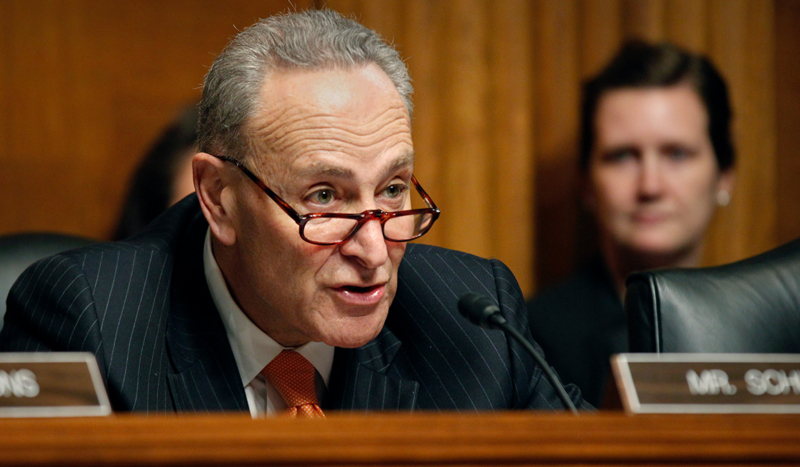
In a 51 -47 vote, the U.S. Senate rejected a resolution to remove the deadline for ratification of the 1971 Equal Rights Amendment (ERA).
Prior to Thursday’s vote, Senate majority leader Chuck Schumer, D-NY, touted the bill as “necessary as … America can never hope to be a land of freedom and opportunity so long as half its population is treated like second class citizens.”
‘Loop-hole’ Amendment
Critics of the bill, however, warn that the ERA is a thinly veiled attempt by Democrats to impose abortion-on-demand after the fall of Roe vs. Wade last June. CatholicVote Director of Government Affairs Tom McClusky said that there is a passage in the ERA that “would enshrine abortion into the Constitution and allow for full taxpayer funding of abortion.”
“Placing this language in the Constitution would further us from equality,” added CatholicVote President Brian Burch. “Our First Amendment rights would be infringed upon. Male-only clergy, marriage beliefs, and candid conversations about these matters would be policed by the whims of the federal government.”
The United States Conference of Catholic Bishops (USCCB) issued a statement on March 1, stating that current interpretations of the ERA extend far beyond its original intentions:
While in the early years of the ERA debate some considered these abortion threats to be remote or ‘scare tactics,’ abortion advocates in recent years have freely admitted that they intend to use the ERA to litigate such abortion claims and anticipate that such cases would be successful.
The LGBT Amendment
As CatholicVote reported during the ERA Senate Judiciary Committee hearing:
Critics also warn that the language of the ERA plays into the hands of the current Democratic agenda of expanding traditional protections against sex-discrimination to include “gender” and “sexual orientation” – effectively outlawing dissent against LGBTQ ideology.
Section 1 of the ERA states: “Equality of rights under the law shall not be denied or abridged by the United States or by any state on account of sex.” Proponents argue that the amendment is necessary as a “fundamental constitutional remedy against sex discrimination.”
However, Rep. Ayana Pressley’s, D-MA office stated in a press release: “As the 28th Amendment, the ERA would serve as a new tool—for Congress, for federal agencies, and in the courts—to advance equality in the fields of workforce and pay, pregnancy discrimination, sexual harassment and violence, reproductive autonomy, and protections for LGBTQ+ individuals.”
Since the ERA’s first appearance over 50 years ago, the legal meaning of the word “sex” has undergone significant transformation. The Biden administration and multiple federal courts have recently redefined “sex” more broadly to include sexual orientation and fluid gender identity.
An Expired Attempt?
Because the ERA passed Congress over 50 years ago, the time limit for states to adopt it expired in 1979. Even when President Jimmy Carter extended that deadline to 1982, the amendment was never ratified by more than 35 states (the minimum is 38).
As reported by CatholicVote,
The Department of Justice issued an opinion in January 2020 to clarify that despite efforts being made across the country to ratify the 1972 Equal Rights Amendment (ERA), the time period for ratification had expired and was therefore no longer pending before the states.
The opinion confirmed that “the only constitutional path for amendment would be for two-thirds of both Houses (or a convention sought by two thirds of the state legislatures) to propose the amendment once more and restart the ratification process among the States.”
“The failure of the resolution to remove the deadline in the Senate this week sends the bill’s supporters back to the drawing table,” noted McClusky.

